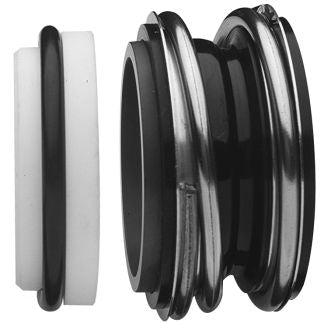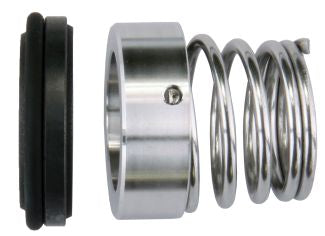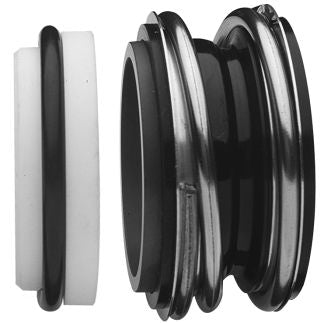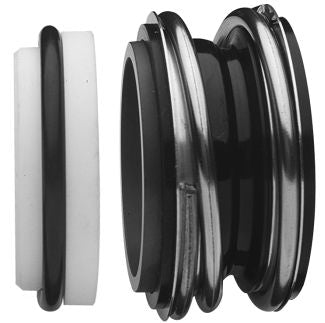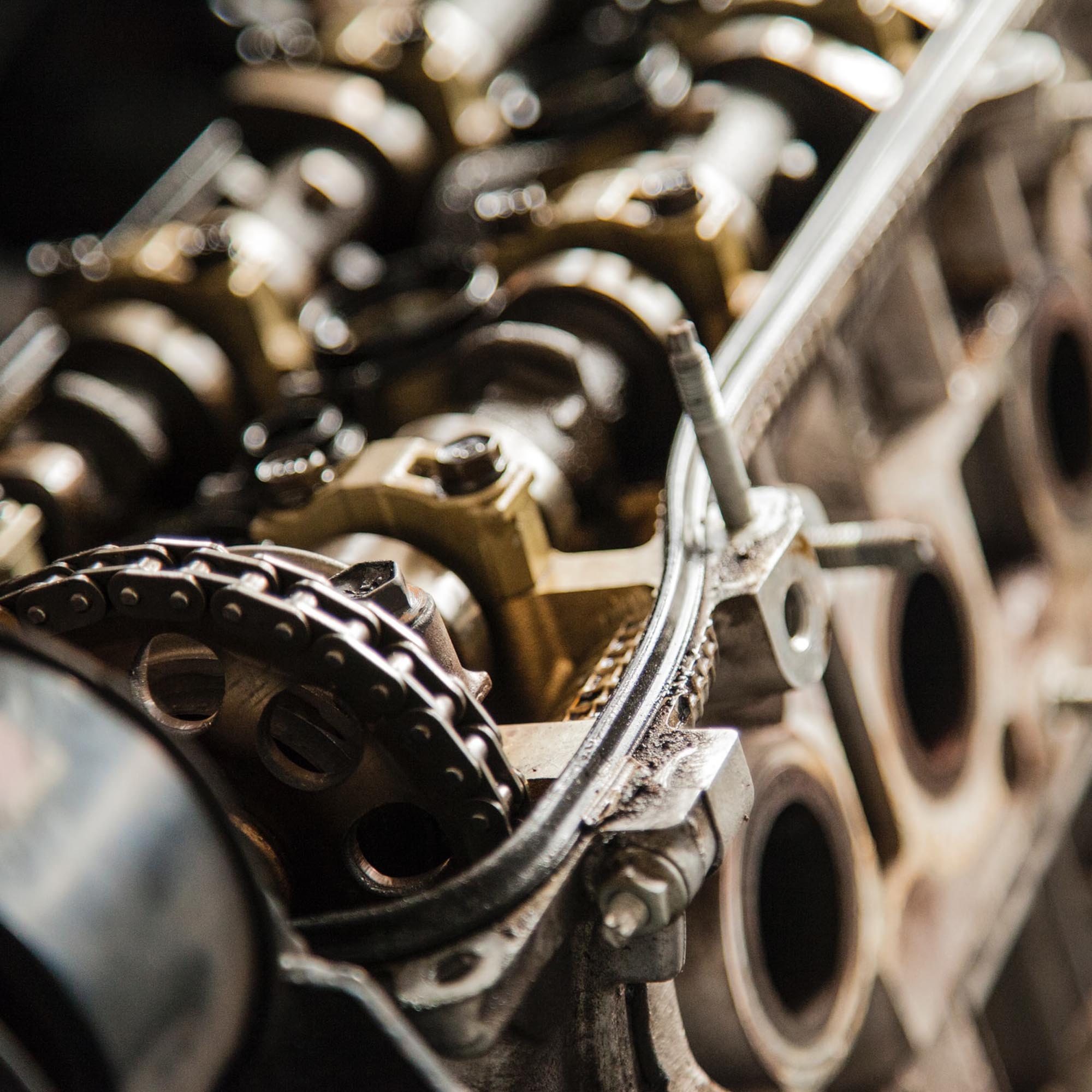
Types of Mechanical Seals
The 4 most common mechanical seals
Mechanical seal types vary in design, setup, and how they disperse the hydraulic forces acting at their faces.
The most common design types are Rubber Diaphragm, Rubber Bellows, O-Ring Mounted & PTFE Wedge. Whilst, other common variations include balanced and unbalanced, pusher and non-pusher, single spring and multi-spring.
Below we take a deeper look at each of these mechanical seal design types, whilst also covering the variations mentioned.
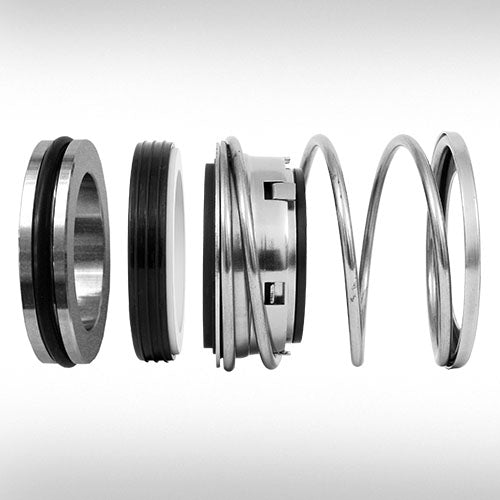
TYPE 1: Rubber Diaphragm
These highly effective seals are widely used in pumps, mixers, agitators, compressors, and other rotary shaft equipment, particularly in chemical processing, food and beverage, and pharmaceutical manufacturing.
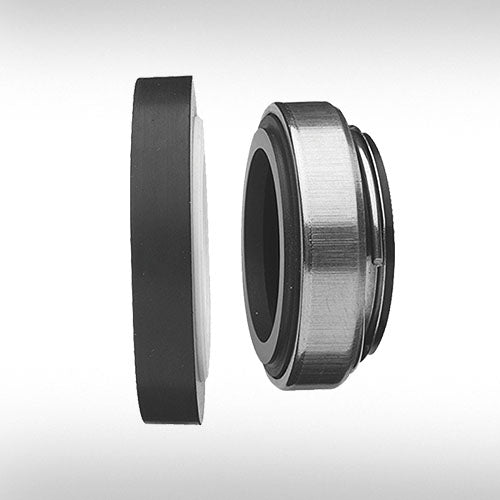
TYPE 2: Rubber Bellows
Ideal for limited-space equipment and repairing shaft damage, rubber bellows seals are commonly used in pumps, compressors, and mixers handling water, oils, and light duties, especially in the food and beverage, wastewater, and general industrial sectors.
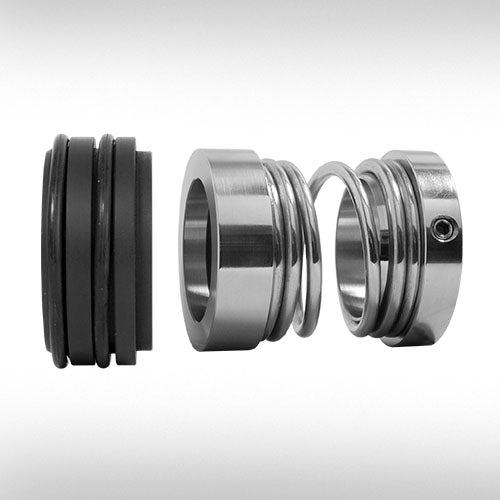
TYPE 3: O-Ring Mounted
These seals align with the rotating shaft to prevent misalignment and ensure efficient productivity. O-ring mounted seals are commonly used in pumps, compressors, and mixers, particularly in chemical processing, pharmaceutical manufacturing, and corrosive fluid environments.
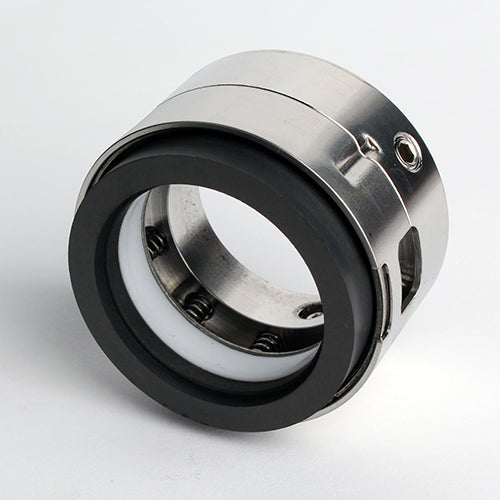
TYPE 4: PTFE Wedge
Designed for processing expensive and highly corrosive liquids, PTFE wedge seals are ideal for chemical processing plants, pharmaceutical manufacturing, and similar environments.
The common mechanical seal variations
In addition to the four primary types of mechanical seals it should be noted that some have sub-types that enable to seal to perform under differing environments such as pressure, temperature or the type of media that is being pumped.
-
Balanced & Unbalanced
Find out moreSeals are available as balanced, for high pressure, and unbalanced, for low pressure, with both having advantages and disadvantages.
-
Pusher & Non-Pusher
Find out moreAnother condsideration is if a pusher seal, for low temperatures, or non-pusher seals, for high temperatures, is best suited for the job.
-
Single & Multi-Spring
Find out moreSome seals come with a single spring, however, there are times when a mutli-spring seal is required, when handling hazadous fluids.
Some mechanical seal variants can go by different names to the ones listed above. There can often be some overlap in how various manufacturers might name them so please be aware of possible confusion.
Selecting the Right Mechanical Seal
Choosing the appropriate mechanical seal is crucial for ensuring optimal performance, reliability, and longevity of your equipment. Here’s a guide to help you select the right seal based on key factors:
1. Seal Application Type
Identify the specific application and the type of equipment where the seal will be used. Different seals are designed for various applications such as pumps, compressors, mixers, and more. Ensure the seal type matches the equipment's requirements.
2. Seal Operating Conditions
Consider the operating conditions of your system, including:
- Pressure: Determine the maximum and minimum pressures the seal will need to withstand. High-pressure applications often require more robust seals like parallel spring or wave spring seals.
- Temperature: Identify the operating temperature range. High-temperature environments may necessitate seals designed for thermal stability, such as wave spring seals.
- Fluid Type: Consider the type of fluid or gas being sealed. Some seals are better suited for aggressive chemicals, while others are ideal for water, oils, or hygienic applications.
3. Seal Material Compatibility
Select seal materials that are compatible with the fluid or gas being handled to ensure durability and performance. Common materials include:
- Elastomers: Ideal for general-purpose applications involving water and oils.
- PTFE (Polytetrafluoroethylene): Highly resistant to corrosive chemicals, suitable for harsh chemical environments.
- Silicon Carbide and Ceramic: Provide excellent wear resistance and are often used in high-temperature applications.
4. Seal Design
Choose a seal design that fits the installation space and accommodates any misalignment or axial movement. Options include:
- Conical Spring Seals: Simple and easy to install, suitable for moderate pressures and temperatures.
- Elastomeric Bellows Seals: Flexible and clog-resistant, ideal for hygienic and general industrial applications.
- Multiple Springs Seals: Provide uniform load and reliability for demanding applications.
- Wave Spring Seals: Compact design for confined spaces and high-efficiency applications.
5. Seal Environmental Factors
Consider external factors such as:
- Vibration and Movement: Ensure the seal can handle any mechanical vibrations or shaft movements.
- Contamination Risk: Select seals that can prevent contamination in sensitive applications like food and pharmaceutical manufacturing.
Selecting the right mechanical seal involves understanding your application's specific needs, operating conditions, and material compatibility. By carefully considering these factors, you can ensure the optimal performance and longevity of your equipment. If you need further assistance, our team is here to help you choose the best seal for your requirements.
Our Promise
Mechanical seals are a complex topic and the above information has been provided as an overview of the subject. All of our information is provided in good faith and should be used as a guide. If you have any queries please get in touch to speak to an expert, we will be happy to help.
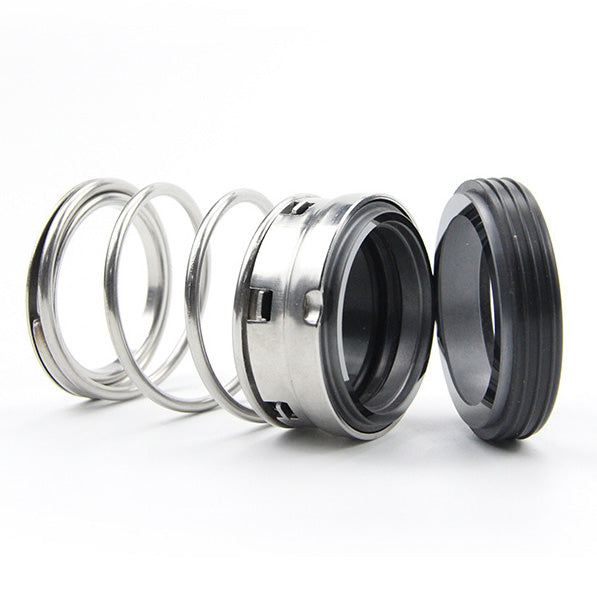
The basics of Mechanical Seals
Identifying, buying and replacing mechanical seals can be complicated if you don't know what you are doing. Find out how mechanical seals work, the components in them and why they should be used.
Learn more
Our Mechanical Seals range
We can supply replacement seals for most major manufacturers: Eagle Burgmann, John Crane, Roten/Uniten, AES, Alfa Laval, Grundfos, MTU, PAC-Seal, US Seal and more.
Our most popular mechanical seals
-
Burgmann MG12 Equivilant Mechanical Seal
Regular price From £117.19 GBPRegular priceUnit price / per -
Roten Type 2 Equivalent Mechanical Seal
Regular price From £117.19 GBPRegular priceUnit price / per -
Burgmann MG1 Equivilent Mechanical Seal
Regular price From £117.19 GBPRegular priceUnit price / per -
Burgmann MG13 Equivilant Mechanical Seal
Regular price From £117.19 GBPRegular priceUnit price / per
Need help finding your perfect seal?
-
Identify the seal you need
Use toolOur Mechanical Seal Idenitifcation tool can help you indentify the seal you need by selecting the key design features.
-
Know your material
View guideOur Mechanical Seals Materials Guide can tell you which material will give you the perfect seal.
-
Check Chemical Compatibility
Check materialsFind the perfect material for your requirements by it's compatibility with the chemical you need to seal.

